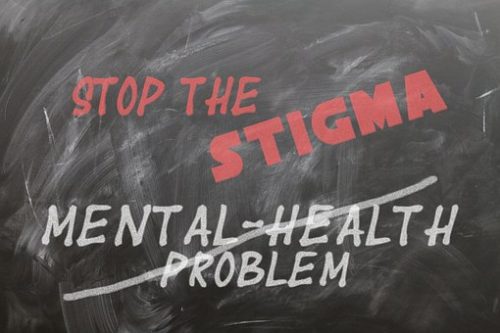 Source: pixabay.com
Source: pixabay.com
When you’re experiencing mental health problems, it is difficult to deal with the symptoms on your own, not to mention inadvisable. Seeking help through therapy is a huge step towards recovery. The good thing about therapy is that there is no single “template” to follow; many available treatments cater to various types of patients with different conditions and experiences.
Crossing the bridge to seek help for your condition can be a daunting endeavor. Once people experiencing mental health problems overcome the fear and stigma enough to reach out, they immediately face another hurdle: talking to their therapist.
So, how do you prepare yourself after seeking help? How do you open up to your therapist about your condition? How do you become honest to your therapist? Sal Raichbach, PsyD often say, “Sadly, only a small percentage of people actively seek professional help for their mental health problems.” That is true.
Assess Yourself: Are You Ready For Therapy?
Before asking how to be honest to your therapist, you must be straightforward to yourself first. When people seek therapy, they do it with the idea that a therapist should be able to fix them up in no time. That is the wrong mindset to bring when coming to your therapy sessions.
Going to therapy means being ready to go to therapy. If you remain closed off or unprepared for the treatment your physician might come up with, recovery will remain unachievable too. You have to be sure you’re ready to reach out. Wanting to recover does not automatically translate to being prepared to face your therapist. Be clear about the difference with yourself; otherwise, going to therapy will be counterproductive.
 Source: pexels.com
Source: pexels.com
Start Small: Trusting Your Therapist
Trust between you and your therapist is a vital aspect of your treatment. You have to accept that recovery means discussing things that might be painful or even traumatic. But you do not need to discuss anything you don’t want to, not without your express permission.
You need to trust your therapist will not push you beyond what’s comfortable for you. If they do, remember that they have your best interests at heart, as well as years of education and expertise. “By building a list of people that you trust, with whom you can talk to in times of need, you allow yourself a strong sense of not being alone.” A reminder from David Klow, a licensed therapist.
You do not need to unload every thought and feeling to your therapist immediately. Tell them about your day. Or better yet, you can also ask them about their day. Begin with a small anecdote or memory. From there, your therapist might have follow-up questions to keep you going. Once you hit a particularly sore spot, tell your therapist that you feel uncomfortable with it.
 Source: pixabay.com
Source: pixabay.com
Professional medical practitioners possess empathy, which helps them understand your situation. They might never know what it’s precisely like to be in your shoes, but they still have a pretty good idea. If you’re not ready to explore a specific issue, ask them to switch topics or offer one of your own. Your therapist might or might not push it, but remember that they know what they’re doing.
“therapy is a lot of work and this is important to keep in mind before starting. It’s imperative to understand this so that you can set realistic expectations for yourself.” Nathaniel Cilley, LMHC said. Vulnerability is part of the reason why a lot of people hesitate about being honest to therapists. They fear all sorts of things, from being judged to being hurt by other people. Seeking therapy is indeed a leap of faith sometimes, but rest assured that therapists are well-equipped and well-trained to help you recover and live your life to the fullest.


 Source: pixabay.com
Source: pixabay.com Source: pexels.com
Source: pexels.com



